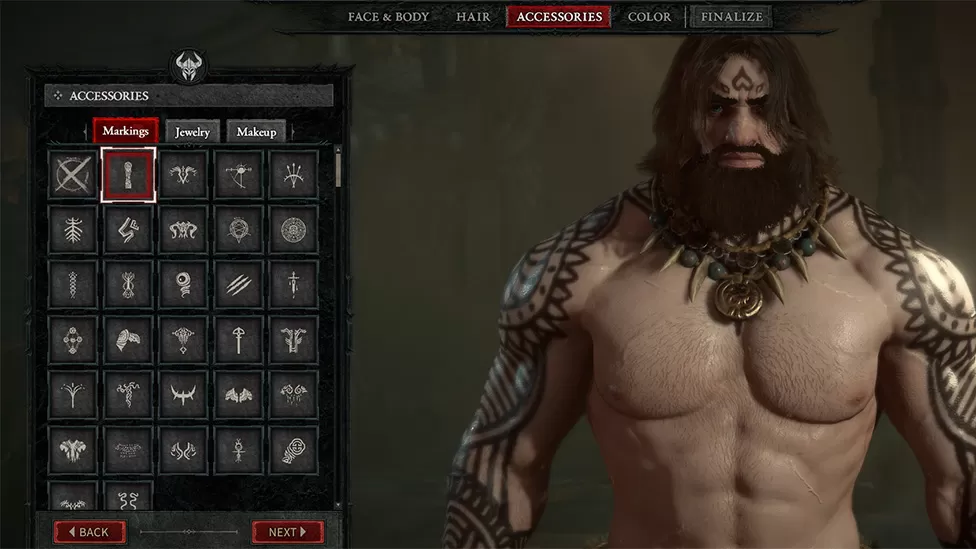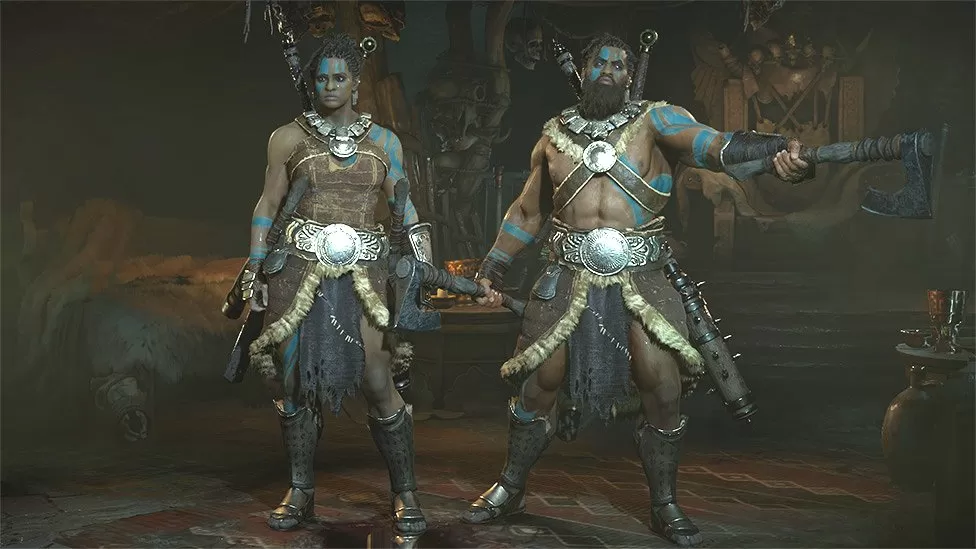In a long-awaited release, Diablo IV, the latest installment of the beloved action role-playing game series, is finally here after over a decade of anticipation. Among the game’s initial offerings, one feature stands out: the ability to modify your character’s appearance. Developer Blizzard has made significant strides to ensure that this iteration of the game is the most inclusive in the series, providing players with more customization options than ever before.
Character customization is not a novel concept in gaming; numerous titles, ranging from Animal Crossing to Dead by Daylight, allow players to alter their in-game avatars. However, modern games are placing increasing emphasis on this feature. In the past, players may have had only a handful of looks to choose from, but now they can enjoy a vast array of options. This shift is, in part, a response to the complaints voiced by female, LGBTQ, and gamers of color, who felt a lack of representation and customization options available to them.

In Diablo IV, a game that can consume well over 100 hours of playtime, the demand for increased character customization options was particularly high. The fantasy game offers players five distinct character classes, each with unique abilities: barbarian, rogue, sorcerer, necromancer, and druid. From there, players can personalize their characters by selecting body types, adjusting skin tones and hairstyles, and even adding tattoos and piercings.
For gamers like Ashlyn, who goes by the moniker Actually Arcane on Twitch, the unveiling of these new options evoked an emotional response. In a video shared on Twitter, she expressed her elation at finally seeing a character that resembled her own physical attributes. Ashlyn emphasized the significance of this moment, as she felt truly seen and represented within a game she had eagerly anticipated. Despite the availability of character customization features in many modern games, she found it challenging to create an avatar that accurately reflected her own body diversity.

Ashlyn’s video garnered over 1.5 million views and ignited conversations around the importance of representation in gaming. It highlighted how the inclusion of diverse options can have a profound impact on players’ experiences. However, while Diablo IV took a step in the right direction, it has also faced criticism for limitations in character customization. Certain body types are tied to specific character classes, forcing players to choose specific classes to achieve certain body shapes. This restriction has prompted calls from Ashlyn and others for game developers to push boundaries further and challenge established norms.
Streamer Ben Thompson, known as ReadySetBen to his followers, shares similar sentiments. As a black and LGBTQ+ gamer, Ben believes that the gaming industry could better serve these communities. He points to issues like limited options for black hairstyles, which often fall short of accurately representing diverse styles. Ben recognizes that the need for change extends beyond a single game, as there is substantial variation across the industry in terms of inclusive representation.
Tulay McNally, an industry insider with experience working for prominent brands like EA, sheds light on the challenges faced by game developers in this domain. While they strive to do the right thing, technological limitations and the time-consuming nature of game development can hinder progress. Introducing new body types and features requires additional animation and research, which translates into increased development time and costs.
Despite these challenges, there is speculation among players about whether Blizzard will expand the customization options through future updates. As Tulay McNally, now working with the LGBT group Out Making Games, points out, customization matters because it enhances player immersion and engagement. Offering a broader range of character options widens the player base, allowing more individuals to connect with the game and fulfill their unique aspirations.
As the gaming industry increasingly recognizes the value of inclusivity, there is a growing consensus that customization and representation are not only matters of social importance but also good business practices. Players are demanding more diverse and inclusive options, and game developers are beginning to understand the positive impact it can have on player experiences, fostering a stronger sense of engagement and connection.

